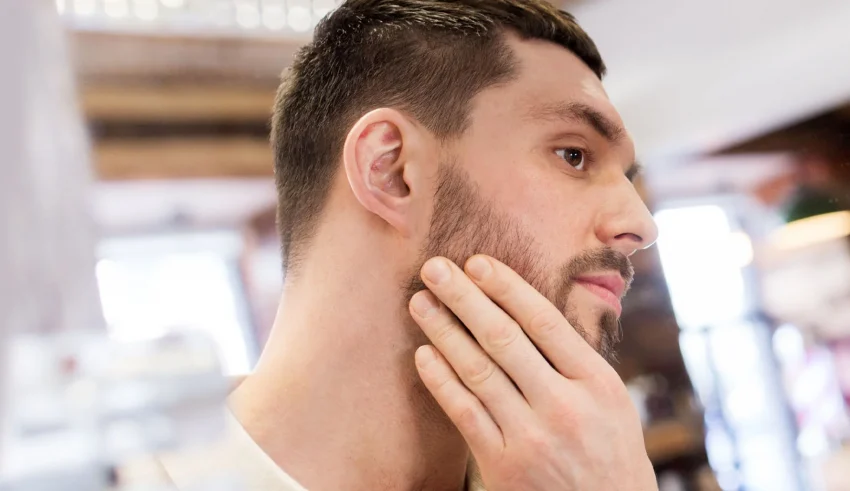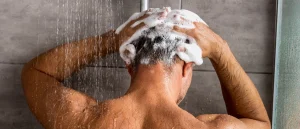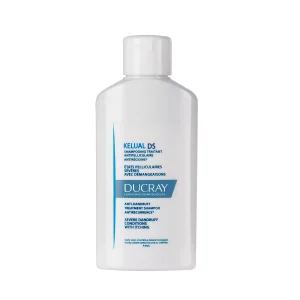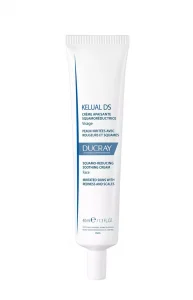
Seborrheic dermatitis is a common skin condition. It mainly affects the scalp and causes redness, irritation, itching, and patches of oily, scaly skin. Seborrheic dermatitis is extremely painful to deal with. To treat it, there are a variety of shampoos available. Since they are not all created the same, finding the right one becomes a challenge. That’s why we reached out to the dermatologist Dr. Shaimaa Daoud to learn more about this condition and get her advice on the best seborrheic dermatitis shampoo.
What are the main symptoms and causes of seborrheic dermatitis?
Seborrheic dermatitis is a skin condition that primarily affects the scalp. Scaly patches, red skin, and dandruff on the scalp are the most common symptoms of seborrheic dermatitis. You should expect a lot of itching if you have dandruff, which may be your first indicator – especially if it’s really intense and already too much for you to endure. It can also affect other oily areas of the body, such as the eyebrows, face, and chest.
What is the origin of the problem? It’s caused by an excess of a yeast called Malassezia, just like dandruff. Medical specialists, however, have not been able to identify a single cause. In fact, it appears to be the result of a combination of causes and risk factors, including genes, stress, environmental conditions, an abnormal immune system response, and many others.
What is the best treatment for seborrheic dermatitis?
Although it may seem like a serious condition, in most non-serious cases, seborrheic dermatitis can simply disappear, even without proper treatment. For others, all it takes is a consistent use of treatments which contain ingredients that target this type of skin condition. In addition, a good hair wash to remove buildup and excess oil can also help restore balance to the scalp, which promotes healthy hair and scalp.
According to Dr. Shaimaa Daoud, treatments for seborrheic dermatitis include antifungal shampoos, topical treatments, emollients, and systemic treatment in some cases.
All of these treatments are designed to reduce inflammation and swelling of the scalp, relieve itching and loosen the flakes that lead to dandruff.
How to choose the best seborrheic dermatitis shampoo?
The most important factor when buying a shampoo for seborrheic dermatitis is its composition. Dandruff shampoos should contain active ingredients that cleanse the scalp and remove flakes and itching. These active ingredients may include ketoconazole, coal tar, salicylic acid, selenium sulfide, zinc pyrithione, etc.
- Ketoconazole
Ketoconazole is often used in dandruff shampoos. Its main attribute is that it inhibits fungal growth, which can lead to dandruff, one of the common symptoms of seborrheic dermatitis.
- Coal tar
Coal tar is another ingredient sometimes found in dandruff shampoos. It helps suppress fungus while decreasing inflammation. When combined with ketoconazole, coal tar also helps reduce fungal growth.
- Salicylic acid
Salicylic acid is often effective in treating seborrheic dermatitis and is used in combination with other treatments to reduce scalp flaking.
- Selenium sulfide
Selenium sulfide targets a specific yeast (pityrosporum ovale) which can lead to seborrheic dermatitis. It reduces the number of dandruff cells on the scalp while reducing itching and irritation.
- Zinc pyrithione
Zinc pyrithione helps reduce bacteria on the scalp and can also help fight inflammation and itching.
How often you should use shampoo to treat seborrheic dermatitis varies from brand to brand. Read the directions carefully to see how it fits into your hair care routine. Some shampoos are intended for daily use, while others are effective when used twice a week.
Below we recommend a medicated shampoo that you can use to treat seborrheic dermatitis.
Ducray Kelual DS Treatment Shampoo
Benefits of this product:
- Eliminates dandruff with long-lasting results
- Quickly soothes hair
- Improves quality of life
- Reduces the severity of flakes by 89%.
Intensive treatment phase: 3 times a week for 2 weeks.
Maintenance phase: Once a week. 1 application per week in maintenance offers long-term prevention against dandruff recurrence.
For the care of irritated and flaky skin, it is recommended to use a cream that removes flakes and purifies the skin on areas particularly prone to irritation, such as the edge of the scalp, eyebrows, nose wings, and eyelids.
That’s why we recommend one of the best creams for seborrheic dermatitis:
Ducray Kelual DS Squamo-Reducing Anti-Recurrence Soothing Cream
Tips for using seborrheic dermatitis shampoo
Seborrheic dermatitis is a recurring condition that you can treat while significantly reducing its symptoms. The treatment also has many benefits, including preventing a skin infection while reducing the swelling and itching caused by seborrheic dermatitis.
Using a shampoo designed to treat seborrheic dermatitis is an excellent way to reduce symptoms and even prevent them from returning too frequently.
- Use medicated shampoos frequently
Medicated shampoos are often effective in treating seborrheic dermatitis and dandruff, and many can be used daily until symptoms disappear.
Make sure the shampoo penetrates deep into the scalp and leave it on for a few minutes before rinsing.
- Follow your doctor’s instructions
Always follow your doctor’s instructions when using a medicated shampoo. These instructions may vary depending on your age and the severity of your symptoms.
- Alternate with your regular shampoos
In some cases, it is possible to alternate between two shampoos, meaning you can use an anti-dandruff shampoo one day and your regular shampoo the following day.
- Decrease the dose, if necessary
As your dandruff and other symptoms improve, you can reduce the use of shampoos designed to treat seborrheic dermatitis.
In other cases, a shampoo’s formula is strong enough that you may only need to use it twice a week from the start.
- Avoid styling products if possible
It’s a good idea to avoid styling products, such as sprays and gels, when treating seborrheic dermatitis with shampoo. You should also avoid hair products that contain alcohol, as they can make symptoms worse.
- Use a conditioner
You can follow your shampoo with a deep conditioner that helps seal in moisture while making your hair softer and more manageable.
Will seborrheic dermatitis cause hair loss?
Dr. Shaimaa Daoud indicates that seborrheic dermatitis can cause hair loss in rare cases, however, hair does grow back.
If hair loss occurs, it is probably due to scratching and rubbing of the scalp, as it can be very irritating.
In very rare cases, the inflammation can also affect the hair follicles and cause temporary hair loss. In these cases, the hair loss is not permanent and will eventually grow back if the person takes steps to control the inflammation.
A healthier scalp with proper treatment
There’s no need to worry when you realize you may be suffering from seborrheic dermatitis. Treatment is within reach with medicated creams and shampoos formulated to treat this condition. If you feel that your symptoms are not responding to these treatments, it may be time to see your doctor.











